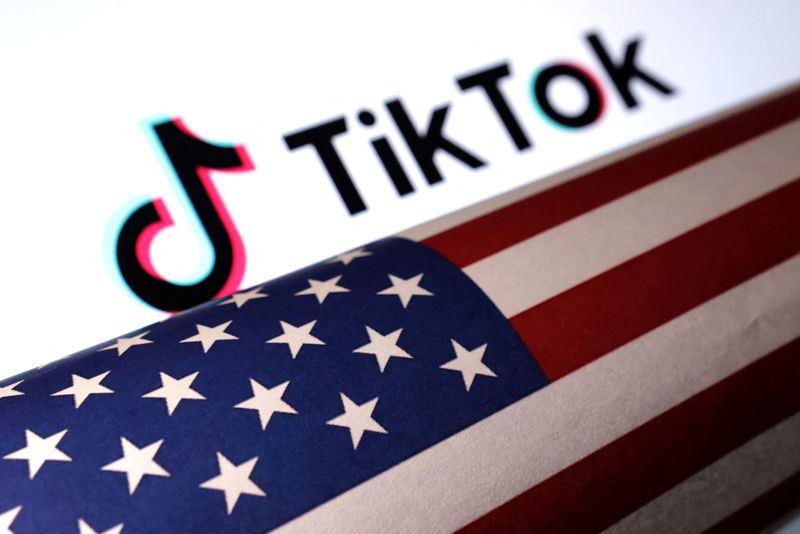By Kanishka Singh
WASHINGTON (Reuters) – TikTok expressed free speech concerns on Sunday about a bill passed by the U.S. House of Representatives that would ban the popular social media app in the United States if its Chinese owner ByteDance does not sell the his participation within one year.
The House passed the bill Saturday by a margin of 360 to 58. The proposal now goes to the Senate where it could be put to a vote in the next few days. President Joe Biden has previously said he will sign the legislation.
The move to include TikTok in a broader foreign aid package could speed up the timeline on a potential ban after an earlier separate bill stalled in the U.S. Senate.
“It is unfortunate that the House of Representatives is using the cover of major foreign and humanitarian aid to once again block a ban bill that would trample on the free speech rights of 170 million Americans,” TikTok said in a Note.
Many US lawmakers from both the Republican and Democratic parties and the Biden administration say TikTok poses national security risks because China could force the company to share the data of its 170 million US users. TikTok insists it has never shared US data and never would.
Democratic US Senator Mark Warner, chairman of the Senate Intelligence Committee, said on Sunday that TikTok could be used as a propaganda tool by the Chinese government.
“Many young people on TikTok get their news (from the app), the idea of giving the (Chinese) Communist Party such a large propaganda tool and the possibility of stealing the personal data of 170 million Americans, is a risk thing for national security,” he told CBS News.
Some progressive Democrats have also raised free speech concerns about a ban and have instead called for tougher data privacy rules.
Democratic U.S. Rep. Ro Khanna said Sunday that he believed a TikTok ban might not survive legal scrutiny in the courts, citing free speech protections under the U.S. Constitution.
“I don’t think it will stand First Amendment scrutiny,” he said in an interview with ABC News.
The House voted March 13 to give ByteDance about six months to divest the short-video app’s U.S. operations or face a ban. The legislation passed Saturday includes a nine-month deadline that could be further extended by three months if the president determines progress toward a sale.

TikTok was also a topic of conversation in a call between Biden and his Chinese counterpart Xi Jinping earlier this month. The White House said Biden raised American concerns about ownership of the app.
(This story has been refiled to correct punctuation in paragraph 10)